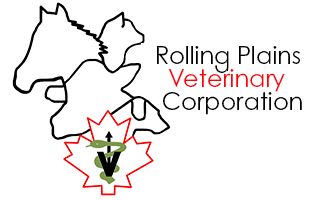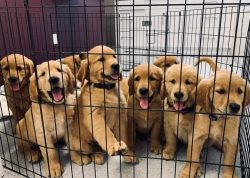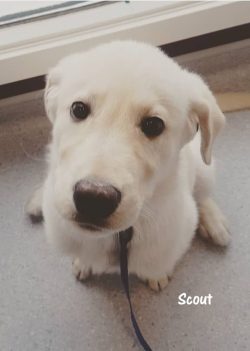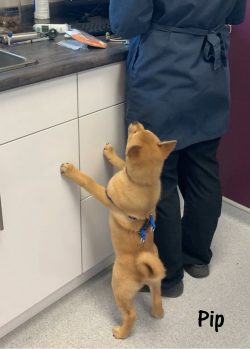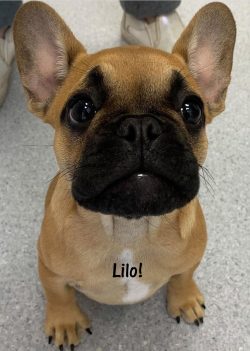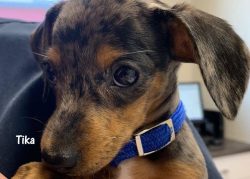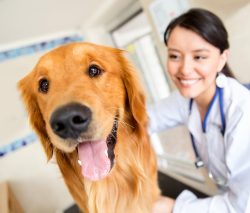 Man’s best friend needs the oversight of a trained dog vet in Manitoba. From spays/neuters to deworming, wellness exams to surgical procedures and beyond, we’re your partner for any and all care your pup may need throughout his life.
Man’s best friend needs the oversight of a trained dog vet in Manitoba. From spays/neuters to deworming, wellness exams to surgical procedures and beyond, we’re your partner for any and all care your pup may need throughout his life.
We’re familiar with most breeds of dogs and we understand the unique health conditions that dogs can develop. We work to ensure your pooch lives a long and happy life through comprehensive preventive care—and we’re here if and when they need emergency assistance or pet microchipping.
Your dog will love you unconditionally: make sure you’re returning the favor and giving them the best quality of life and dog veterinary care in Saint Claude, Rathwell, Haywood, and Manitoba, MB possible.
Our Dog Vet in Manitoba Services
Dogs have been our best friends for a long time, and we would like to keep it that way. Our caring and knowledgeable staff would like to help you set up an appointment for your furry friend.
St. Claude Veterinary Clinic offers a wide range of products, including dog food and treats, shampoos and conditioners, leashes and collars, pharmaceuticals, and nutraceuticals. We’re also available for pet microchipping!
Our main goal with our dog vet in Manitoba is to provide our patients with the best possible medical and surgical care. Whether in-clinic, at home or referred to a specialist, our focus is the health and wellbeing of your pet. Through routine wellness exams, senior pet evaluations, spays/neuters, or even pre-anesthetic blood work with our dog vet in Manitoba; we believe that early detection and preventative medicine will allow your pet to live a long and healthy life.
With the help of ultrasound, digital x-ray, and video endoscopy, we can diagnose your dog’s illness quicker. If those are not enough, your pet has access to our in-clinic blood equipment or maybe have one of our Animal Health Technologists perform a urinalysis or fecal exam. How about a Heartworm/Lyme Disease test? The clinic also has access to the local provincial laboratory for any additional tests.
Euthanasia is never an easy time for you and your pet. It is also difficult on our dog vet in Manitoba, especially when we have seen them grow up with you. They become part of our lives too. They ask very little from you but give so much back in return. We try to make this process for you as easy as possible. We offer our clients the option of burial bags for our smaller dogs or cremation options for any sized pet.
Contact us and our dog veterinary experts today to make an appointment for surgery, pet microchipping, pet supplies, and other veterinary services. We look forward to hearing from you!
FAQs About Our Dog Vet in Manitoba
Q. Will euthanasia be painful for my dog?
A. Veterinarians make sure their terminal patients are no longer conscious before they administer euthanasia drugs. Dogs euthanized by a dog vet in Manitoba. The process takes no longer than 15 minutes.
Q. Do dogs know when they are being put down?
A. We don’t think so. If they have cancer, or bone disease, or severe injuries, they may yelp in pain as the vet handles them for the procedure. But this is due to the disease, not to euthanasia.
Q. Is a dry nose a sign my dog is sick?
A. Dogs lick their noses to carry scent chemicals from the outside of their noses to the olfactory centers in the roofs of their mouths. Licking the nose is a way of detecting fainter smells. In this process, of course, your dog’s nose gets wet. Dogs don’t lick their noses when they aren’t sniffing for something out of the ordinary. A dry nose doesn’t mean your dog is sick, just that your dog isn’t on the trail of something.
Q. Why do dogs pant?
A. Dogs don’t have sweat glands like humans. They pant to lower their body heat when the air around them is uncomfortably warm. Dogs usually take 30 or 40 breaths a minute, but when they are panting, they exchange air 300 to 400 times a minute to lower their core temperature. Causes of unusual panting can include tracheal collapse, endocrine disease, stress, and pain.
Q. Why do dogs eat their own poop?
A. Nobody takes newborn puppies on a potty break. Instead, their mothers take of this by licking them clean. Coprophagy (poop eating) is an act every dog understands.
When dogs that aren’t nursing puppies eat their own feces, they may be trying to get attention. They may suffer a severely unbalanced diet, intestinal parasites, or pancreatic disease.
Some dogs eat their own feces because they like the taste. The solution to this problem is to treat the feces with a product like Pet Butler before your dog can eat it.
Q. Why do dogs sniff each other’s posteriors?
A. Dogs have anal glands for releasing scents that identify them as unique individuals. These secretions include both foul-smelling scents and pheromones that have no scent at all. Dogs have a complex olfactory system that includes Jacobsen’s organ in addition to their nose, for detecting odorless pheromones.
A butt sniff in dogs serves the same function as a handshake in humans. A whiff of anal gland secretions tells as dog the other dog’s age, sex, general health condition, and status in the dog’s social order. Dogs wag their tails to release scents to welcome other dogs and move their tails to communicate changes in direction when they are running together.
Q. Why do dogs walk in circles before lying down?
A. When dogs lived in nature, they had to bend grasses to make a mattress for the night. Walking in circles around the sleeping area also drove away noxious animals such as scorpions, spiders, and snakes. Modern dogs no longer have to make their own beds, but the behavior has become imprinted on the brains of even today’s dogs.
Q. My dog twitches and barks about 20 minutes after going to sleep? What’s going on?
A. Dogs dream during REM sleep, which begins 20 to 30 minutes after they fall asleep. We don’t know what dogs dream about, but barking and lunging motions suggest they dream about what they did during the day and the interesting animals they encountered on their walks.
Q. What should I do if my dog seems to be having a nightmare?
A. Let your dog wake up on her own. Dogs can become very aggressive if they are awakened in the middle of a bad dream.
Q. Can farm dogs live outside in Canada?
A. All dogs need protection from wind, snow, ice, and cold. Even if you keep Huskies or Malamutes or some other cold-hardy breed, there will be times when supplemental heating is essential for your dog’s health. Any short-haired breed will need protection from the cold during the winter. Dogs that have diabetes, heart disease, or hormonal disturbances like hypothyroidism or Cushing’s disease need protection from extremes of both cold and heat, because their bodies are not efficient at regulating temperature.
Q. What documentation do I need to take my dog with me when I drive across the border with the US?
A. The United States requires that all dogs entering their country look healthy on arrival. Rabies vaccination and microchipping are not required, but they are recommended.
When you are coming back into Canada with a puppy (less than three months old), you just need a statement of age from a veterinarian and to be able to show that you are transporting your puppy under humane conditions. If your dog is more than three months old, you will also need proof of vaccination for rabies.
Contact Us Today!
These are the rules for bringing back a dog that is your personal pet. If you are planning to keep the dog in foster care, use the dog for breeding or show, or employ the dog in scientific research, or give the dog to someone as a gift, commercial rules apply.
